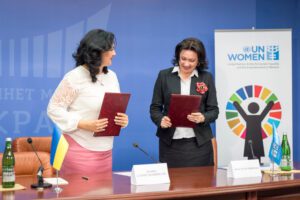
According to a new report by the United Nations Population Fund (UNFPA) entitled “The real fertility crisis,” global birth rates have reached an all-time low, confirming the global trend toward demographic decline.
Key findings of the study
The average fertility rate has fallen from 5 to approximately 2.2–2.3 children per woman since 1950.
In more than half of countries, including the US, Germany, India, and Brazil, the average number of children per parent is below the replacement level of 2.1–2.2.
One in five adults in 14 countries surveyed (the US, India, Brazil, Germany, etc.) said they could not have as many children as they would like, primarily due to the high cost of living and financial problems.
The analysis shows that the problem is not a lack of desire to have children, but a lack of opportunities — a lack of social and financial support.
“The world has entered a phase of large-scale fertility decline… Many people feel they cannot have the family they want, and this is indeed a crisis,” said Natalia Kanem, Executive Director of the Fund.
Demographic instability — population decline and an aging population — threaten the economy and social structure of countries. The loss of young citizens — young families are postponing having children or deciding not to have them at all, which reduces consumption and national wealth. Geographical heterogeneity — while the populations of Europe and Japan are declining, growth is occurring mainly in Africa, Asia, and Latin America.
The UNFPA report clearly states that fertility is declining not because of a lack of desire to have children, but because of a lack of adequate support from governments. Without PROGRAMMATIC assistance in the social and economic spheres, global societies risk facing demographically impoverished future generations.

The United Nations Economic and Social Council elected Ukraine to the Executive Council of UN Women for 2022-2024, and also re-elected for a three-year term to the Executive Board of the United Nations Development Program (UNDP), United Nations Population Fund (UNFPA), The United Nations Office for Project Services (UNOPS), the press service of Ukraine’s Ministry of Foreign Affairs reported on Tuesday.
“The election of Ukraine to the governing body of UN Women was a confirmation of our state’s consistent adherence to the strategic course on ensuring equal rights and opportunities for women and men at the national and international levels. As part of the Executive Council, the Ukrainian side will continue to strengthen women’s leadership and promote women’s participation in political processes, in particular in the context of implementation of the Women. Peace. Security,” Ukrainian diplomats report.
It is reported that the last time Ukraine was represented in the Executive Council of UN Women in 2011-2013.
“The main task of the Ukrainian membership in the Executive Board of UNDP, UNFPA, UNOPS will be to improve the efficiency of the operational activities of the UN development system, to provide assistance to member states for economic recovery after the COVID-19 pandemic,” the Foreign Ministry said.
They add that Ukraine is one of the thirty countries on whose territory major projects are being implemented with the support of the UN.
“Our state is especially interested in the UN operational activities being effective and result-oriented, eliminating duplication and avoiding gaps in the interaction of agencies in the host countries,” the message says.
It says that over the next few years, UN agencies in Ukraine will continue to provide assistance to the Ukrainian government in order to overcome the negative consequences in socio-economic sphere amid the spread of the coronavirus.
Other areas of enhanced interaction will be the development of democratic governance, sustainable economic growth, employment, green energy and modern technologies.
“These projects are being implemented within the framework of partnership between the government of Ukraine and the UN for 2018-2022 with a budget of $667 million,” the Foreign Ministry said.
The United Nations Entity for Gender Equality and the Empowerment of Women (UN Women) was established by UN General Assembly Resolution 64/289 on 2 July 2010.
The goal of UN Women is to accelerate the achievement of the UN goals in the field of gender equality and the empowerment of women, in particular by implementing policies, global standards and norms in this area, providing technical and financial assistance to member states in the implementation of these norms, strengthening effective partnerships with civil society and the like.